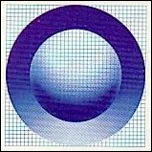 SBS Television is thirty years old this weekend.
SBS Television is thirty years old this weekend.
An initiative of the Fraser Government, the Special Broadcasting Service was established in the mid-1970s to operate the new multi-lingual radio service that had commenced in Sydney (2EA) and Melbourne (3EA). By the end of the 1970s, the organisation was given the responsibility of operating Australia’s first multi-cultural television station – although there had been plenty of discussion and debate as to whether Australia actually wanted, or needed, such a service. It’s a discussion that probably continues to this day but it should be noted that prior to SBS’ introduction, multicultural or even indigenous representation on Australian television was all but non-existent in a sea of American, British and white Australian culture. There were a few exceptions, though. The 0-10 Network presented weekly programs aimed at the Italian and Greek communities as well as presenting an educational program, You Say The Word, which was devised to improve the English language skills of a growing migrant population. The popular drama series Number 96 also provided a glimpse of a multicultural society in Australia, often featuring characters or actors of mixed racial or cultural origin. It might not have presented these characters in the most appropriate light, but it was a representation nonetheless.
SBS made its first television appearance with a series of test transmissions broadcast on ABC in Sydney and Melbourne on Sunday mornings in 1979. This video (taken from SBS’s 20th anniversary special, 20/20 Vision, in 2000) recounts those early test transmissions and the formation of the new channel:
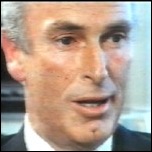 Then on United Nations Day – 24 October 1980 – the chief executive of the Special Broadcasting Service, Bruce Gyngell (pictured), presented the launch of the new Channel 0/28, which was officially opened by prime minister Malcolm Fraser.
Then on United Nations Day – 24 October 1980 – the chief executive of the Special Broadcasting Service, Bruce Gyngell (pictured), presented the launch of the new Channel 0/28, which was officially opened by prime minister Malcolm Fraser.
Channel 0/28 started broadcasting from very modest facilities, occupying a few floors of an office building in the Sydney suburb of Milson’s Point. In 1991, both radio and television branches of SBS moved to more modern facilities in the suburb of Artarmon.
Friday 24 October 1980: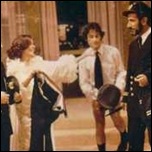 6.30pm Opening Special: Bruce Gyngell presents the official opening and a preview of upcoming shows on the new Channel 0/28. 6.30pm Opening Special: Bruce Gyngell presents the official opening and a preview of upcoming shows on the new Channel 0/28.7pm Who Are We? Peter Luck presents a documentary on the people who make up Australia. 8pm Giochiamo Al Variete. Italian variety program. 9pm Movie: Three Sea Wolves (pictured). Australian production starring Chantal Contouri, presented in Greek and English. 10.30 Movie: Don’t Lean Out. Yugoslav movie about a young man returning from Germany to his homeland.Saturday 25 October: 5pm Cartoons: from Italy, Hungary and Russia 5.30 La Sonrisa de un Nino. Children’s musical program in Spanish. 6.30 Special: The Chinese Acrobatic Troupe 7.30 Montreaux Comedy Festival. Includes To Norway, Home Of The Giants – featuring John Cleese taking a lighthearted look at his ancestry, Slim Sala Bim from the Netherlands, and Nonstop Nonsens from Germany. 9pm Movie: Hotel Pacific. Polish film depicting life in a large Warsaw Hotel of the 1930s. 10.30 Movie: Varinka. True story of a Russian girl who unwittingly smothers her boyfriend in bed. French movie set in the 19th century. Sunday 26 October: |
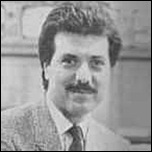 George Donikian (pictured) presented Channel 0/28’s first news bulletin on Monday 27 October 1980. World News initially screened at 9.30pm weeknights but by March it had moved to the earlier 7.30pm timeslot. The main bulletin would later move to 7.00pm before taking up its current 6.30pm timeslot by the late 1980s. Weekend bulletins started a few years after SBS’ introduction, as did a mid-evening 9.00pm bulletin which has since moved to 9.30pm.
George Donikian (pictured) presented Channel 0/28’s first news bulletin on Monday 27 October 1980. World News initially screened at 9.30pm weeknights but by March it had moved to the earlier 7.30pm timeslot. The main bulletin would later move to 7.00pm before taking up its current 6.30pm timeslot by the late 1980s. Weekend bulletins started a few years after SBS’ introduction, as did a mid-evening 9.00pm bulletin which has since moved to 9.30pm.
But not everything associated with the fledgling channel went smoothly. Gyngell had commissioned a talent quest series, Cabaret, from the Grundy Organisation and Willard King Productions. The first episode, hosted by Graham Kennedy and including a panel of judges, was taped in advance and featured entrants representing various ethnic groups. However, just days before the show was to go to air, Gyngell made a last-minute decision to change the show’s format from a talent quest to a general variety show, feeling that it unwise to involve a competitive element between multicultural communities. The first episode was hurriedly re-taped in the new format, and Lebanese-born actor Joe Hasham, best known from the popular Number 96, took over hosting the series from that point.
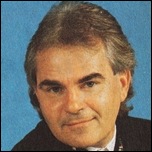 On a more positive note, 0/28 did earn early applause for its adoption of soccer coverage, giving the sport a higher priority and profile than any of the other networks had done. And soccer would continue to feature prominently on the channel, with regular programs and coverage of various leagues and the premier event, the FIFA World Cup, being broadcast on the network every four years since 1990. Les Murray (pictured), who fronts the network’s soccer coverage, has been with the network since it launched.
On a more positive note, 0/28 did earn early applause for its adoption of soccer coverage, giving the sport a higher priority and profile than any of the other networks had done. And soccer would continue to feature prominently on the channel, with regular programs and coverage of various leagues and the premier event, the FIFA World Cup, being broadcast on the network every four years since 1990. Les Murray (pictured), who fronts the network’s soccer coverage, has been with the network since it launched.
Channel 0/28 broadcast initially in Sydney and Melbourne only. In 1983 it expanded to Canberra and nearby regional centres Goulburn and Cooma – coinciding with the channel’s name change to Network 0/28. Adelaide, Brisbane, Newcastle, Wollongong and the Gold Coast joined the network after it had changed its name on-air to SBS in 1985. Perth and Hobart followed in 1986, and Darwin in 1994. SBS became Australia’s first sole UHF network with the VHF Channel 0 broadcasts in Sydney and Melbourne terminated in January 1986.
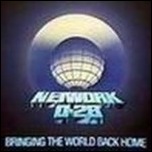 As well as World News, current affairs programming, often taking a different perspective to its commercial rivals, has also featured over thirty years – with programs including SCOOP, Vox Populi, ICAM, Issues, First In Line, Insight, Living Black and the long-running Dateline, which has been running in various formats since 1984.
As well as World News, current affairs programming, often taking a different perspective to its commercial rivals, has also featured over thirty years – with programs including SCOOP, Vox Populi, ICAM, Issues, First In Line, Insight, Living Black and the long-running Dateline, which has been running in various formats since 1984.
One of SBS’ first drama productions, the mini-series Women Of The Sun, won acclaim for its portrayal of Australian history through the eyes of Aboriginal women. Other Australian-made dramas have included City West, The Girl From Steel City, Five Times Dizzy, In Between, House Gang, Going Home, RAN (Remote Area Nurse), The Circuit, Kick and East West 101.
 Since 1983, SBS has broadcast the Eurovision Song Contest – with the event gaining a following in Australia that leaves Europeans mystified. Another European TV tradition – the comedy sketch Dinner For One – has featured on SBS every New Year’s Eve since 1989. The Japanese game show Iron Chef created an appetite for food-inspired competition years before anyone had thought of MasterChef. The boundaries of comedy have been tested with shows like Pizza, Life Support and Wilfred – and a US series, South Park, became a hit. RockWiz (pictured), ADbc, The Squiz, Hot Spell! and Letters And Numbers are among those have represented the quiz and game show genre.
Since 1983, SBS has broadcast the Eurovision Song Contest – with the event gaining a following in Australia that leaves Europeans mystified. Another European TV tradition – the comedy sketch Dinner For One – has featured on SBS every New Year’s Eve since 1989. The Japanese game show Iron Chef created an appetite for food-inspired competition years before anyone had thought of MasterChef. The boundaries of comedy have been tested with shows like Pizza, Life Support and Wilfred – and a US series, South Park, became a hit. RockWiz (pictured), ADbc, The Squiz, Hot Spell! and Letters And Numbers are among those have represented the quiz and game show genre.
In 1986, movie presenter David Stratton was joined by Margaret Pomeranz to host a weekly review program, The Movie Show. The pair fronted the show for almost twenty years before they moved across to ABC to host a similar program, At The Movies.
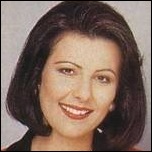 Mary Kostakidis (pictured) was part of the subtitling and management teams when Channel 0/28 launched in 1980. She later took over from George Donikian as presenter of World News, a role she maintained for almost twenty years. Her sudden departure from the broadcaster in 2007 was the culmination of a certain period of unrest, brought about by changes to a more populist style of news coverage and the appointment of an additional newsreader, Stan Grant. Other news presenters over the years have included Karina Kelly, Christina Koutsoukos, Patrice Newell, Silvio Rivier (who was part of the original Channel 0/28 and now hosts the Global Village documentary series), Indira Naidoo, Ben Fajzullin, Amrita Cheema and current day newsreaders Anton Enus, Janice Peterson, Lee Lin Chin, Rena Sarumpaet and Ricardo Goncalves.
Mary Kostakidis (pictured) was part of the subtitling and management teams when Channel 0/28 launched in 1980. She later took over from George Donikian as presenter of World News, a role she maintained for almost twenty years. Her sudden departure from the broadcaster in 2007 was the culmination of a certain period of unrest, brought about by changes to a more populist style of news coverage and the appointment of an additional newsreader, Stan Grant. Other news presenters over the years have included Karina Kelly, Christina Koutsoukos, Patrice Newell, Silvio Rivier (who was part of the original Channel 0/28 and now hosts the Global Village documentary series), Indira Naidoo, Ben Fajzullin, Amrita Cheema and current day newsreaders Anton Enus, Janice Peterson, Lee Lin Chin, Rena Sarumpaet and Ricardo Goncalves.
The sensitive topic of commercials on SBS was first touched on by the network for its coverage of the FIFA World Cup in 1990, and from 1991 SBS was permitted to play five minutes of commercials each hour to supplement its taxpayer-funded income, but commercials would only appear in between programs. In 2006, the network took a controversial step to introduce commercial breaks within programs. It’s a change that continues to attract mixed reaction.
SBS commenced digital transmission in 2001 and, in 2002, launched a new channel, World News Channel, presenting continuous broadcasts of news bulletins from other countries in languages other than English. Last year, World News Channel was replaced by SBS2, still presenting international news bulletins but now including more general programming such as documentaries, dramas and movies as well as some time-shifted programming from the main SBS channel (now SBS1) and extensions of the network’s coverage of sporting events such as the Tour de France.
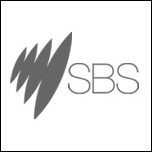 SBS is now at a stage where its role in the media landscape is again under question. Its move away from traditional multicultural programming, particularly on the primary SBS1 channel, has attracted criticism that it is abandoning the very reason it was created in the first place. Its increasing reliance on commercial sponsorship and adopting populist programs such as Top Gear (a program that has since been picked up by Nine) have also attracted criticism as being in conflict with what should be the core values of SBS. Now with the commercial networks hungry for content to fill their multiple digital channels, this is putting up the cost of certain English-language programming that SBS in the past might have been the only buyer. SBS might be wise to rediscover the niche market of multicultural programming and tap into the vast sources of television programming produced in languages other than English instead of trying to be another ABC or another commercial network.
SBS is now at a stage where its role in the media landscape is again under question. Its move away from traditional multicultural programming, particularly on the primary SBS1 channel, has attracted criticism that it is abandoning the very reason it was created in the first place. Its increasing reliance on commercial sponsorship and adopting populist programs such as Top Gear (a program that has since been picked up by Nine) have also attracted criticism as being in conflict with what should be the core values of SBS. Now with the commercial networks hungry for content to fill their multiple digital channels, this is putting up the cost of certain English-language programming that SBS in the past might have been the only buyer. SBS might be wise to rediscover the niche market of multicultural programming and tap into the vast sources of television programming produced in languages other than English instead of trying to be another ABC or another commercial network.
To commemorate its 30th anniversary, SBS’ weekly program Dateline will present a special report of highlights from its many years in covering international current affairs.
SBS have also published a website for the occasion of its 30th anniversary – including an interactive timeline and links to videos of certain milestones.
Dateline, Sunday 24 October, 8.30pm. SBS1 (Repeated Monday 1.30pm on SBS1 and Wednesday 7.30pm on SBS2)
Source: The Age, 27 October 1980; The Age, 13 November 1980; TelevisionAU: SBS
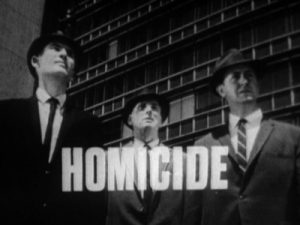
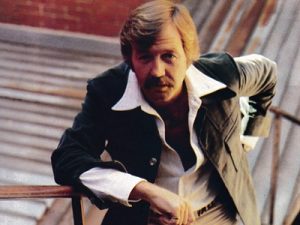
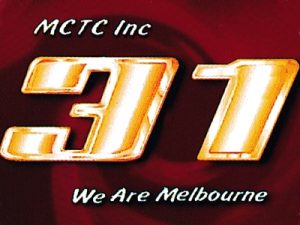
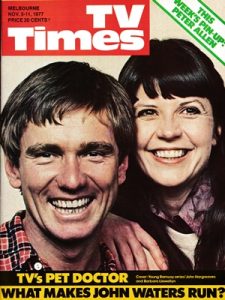
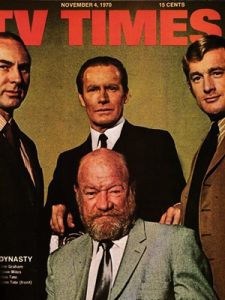
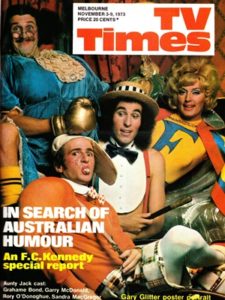
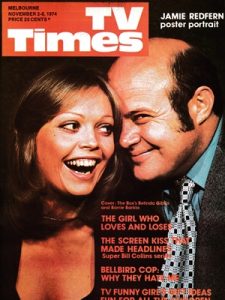
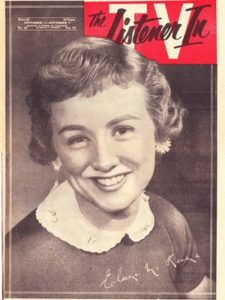
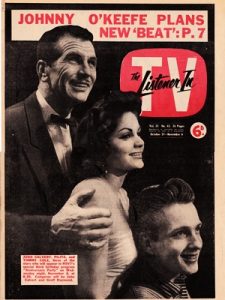
A very comprehensive coverage of the first 30 years of SBS.
Many of the programmes I've watched over the years are listed.
As for the commercial breaks within programmes … The Virtual World with Alex had some.
Hello,
could you please tell me the name of the woman presenter and journalist on the Showbiz programme in the 1980’s?
Thank you,
Dena
I think you might be referring to Zuzanka Kutena?
PS she had very big hair!